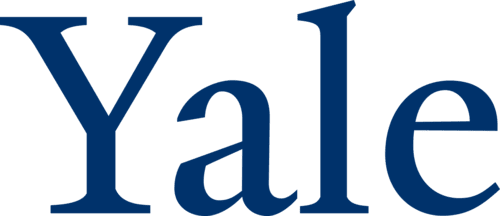Boost your IB Computer Science Scores with Think Smart Tutors
IB Computer Science doesn’t have to be complicated.
With the help of personalized expert tutoring, you can get better grades and prepare for final exams.
Think Smart IB Tutors are the most qualified in the industry at offering first rate tutoring to students in international school environments.
We specialize in IB and MYP, but can also tutor other international curricula and tests such as SAT or ACT.
Think Smart alumni now attend
All Your IB Computer Science Questions Answered
Frustrated with 'system fundamentals'? Overwhelmed by 'computer organization'? We were IB students once, too. We understand how challenging subjects like 'networks and programming' can get. But don't worry, we're ready to support and guide you through every part of IB Computer Science.
The sooner you start with tutoring, the higher your IB score.
Tutored students feel less stressed and perform better than their classmates.
1-on-1 tutoring is personalized and way more useful than textbooks and study guides.
Students with long-term tutoring typically improve their IB score by at least 2 points!
Feel more confident and prepared after just one session!
Let’s Take a Look at the IB Computer Science Syllabus:
IB Computer Science SL Overview
Core Topics (80 hours)
System Fundamentals: Understanding the basics of computer systems and their uses.
Computer Organization: Learning the inner architecture of computers.
Networks: Exploring how computers connect and communicate.
Computational Thinking, Problem-solving, and Programming: Developing the ability to solve problems effectively using computational methods.
Optional Topics (Choose one, 30 hours)
Databases: Managing and organizing data efficiently.
Modeling and Simulation: Using computational tools to replicate real-world processes.
Web Science: Studying the structure and impact of the web.
Object-oriented Programming (OOP): Learning about a widely-used programming paradigm focused on objects and classes.
IB Computer Science HL Overview
Core Topics (Same topics as SL, 80 hours)
Optional Topics (Same topics as SL, Choose one, 45 hours)
HL Extension Topics (45 hours)
Abstract Data Structures (ADS): Focuses on complex data organization, exploring structures like trees, graphs, and hash tables to optimize data management and processing.
Resource Management: Examines how computer systems manage resources, including memory, processing power, and storage, ensuring efficient and effective utilization.
Control: Covers the mechanisms that manage the flow of data and instructions in a computer system, including algorithms and processes that govern the execution of tasks.
Assessment Model
External Assessments
SL Paper 1: Involves problem-solving and comprehension questions focusing on the core topics, testing your quick thinking and grasp of fundamental concepts.
SL Paper 2: Explores the chosen option in depth, examining your specialized knowledge and application skills within that domain.
HL Paper 1: A more rigorous examination with an emphasis on detailed understanding and the ability to analyze and evaluate computer science concepts.
HL Paper 2: Delves into complex issues of the selected option, assessing your ability to tackle advanced problems and provide comprehensive solutions.
HL Additional External Assessment
Paper 3: For the HL Computer Science course, the additional external assessment, Paper 3, focuses on a pre-seen case study. This examination requires students to answer questions that are based on this case study, which is provided in advance, allowing them to prepare thoroughly. The case study typically explores complex issues within computer science, testing students' abilities to analyze, apply, and evaluate computer science concepts and scenarios in depth. This paper is unique to the HL course and aims to deepen students' understanding of real-world computer science applications.
Internal Assessment (30 hours)
Practical project: The Internal Assessment for IB Computer Science is an essential 30-hour component where students engage in a practical project. Here, students design, develop, and document a computational solution to a real-world problem. This in-depth project encourages the application of programming skills and theoretical knowledge, requiring a thorough write-up that explains the development stages, challenges, and solutions. It's an opportunity for students to showcase their individual coding talents and problem-solving abilities, contributing significantly to their overall IB experience.
Group 4 Project (10 hours)
The Group 4 Project is a collaborative and interdisciplinary aspect of the IB, demanding a minimum of 10 hours of teamwork among students from different science subjects, including Computer Science. This project encourages students to explore scientific issues through collaborative, cross-disciplinary research, allowing them to apply their knowledge and skills in an integrated approach, and to recognize the interconnectedness of different scientific disciplines.
Difference between Core Topics and Optional Topics
In the IB Computer Science curriculum, core topics are mandatory areas of study that all students, both SL and HL, must cover to build a foundational understanding of computer science principles. These topics lay the groundwork for understanding the broader concepts of the subject.
Optional topics, on the other hand, allow students to specialize in a particular area of interest within computer science, providing an opportunity to delve deeper into a specific field. While the core topics are required, students choose one optional topic to study in more detail, allowing for personalized learning tailored to their interests and future goals.
Differences between SL and HL
HL includes additional core topics, such as abstract data structures, resource management, and control, offering a deeper and more comprehensive exploration of computer science principles.
HL students face an extra external assessment (Paper 3), based on a pre-seen case study, which challenges them to apply their knowledge to complex, real-world scenarios, enhancing their analytical and problem-solving skills.
With more teaching hours, HL students delve into the intricacies of computer science, preparing them for higher education and careers in this dynamic field, and staying abreast of the latest technological advancements and challenges.
Advice for a Successful Group 4 Project:
For a smooth Group 4 project in IB Computer Science, choose a topic that links computer science with other sciences. Plan your work, divide tasks based on strengths, and keep in regular communication with your team. Focus on solving a real-world problem to show how different sciences can work together. Document your process and learn from the collaborative experience. If you're struggling, consider getting a tutor to help navigate and enhance your project work, ensuring a comprehensive understanding and application of interdisciplinary skills.
Some project ideas for the Group 4 Project in IB Computer Science:
Develop an app to automate school processes like attendance or homework tracking, showcasing the practical use of software development skills.
Collaborate with biology students to create a simulation model that predicts the spread of an infectious disease, applying computer science to epidemiological studies.
Build a robot with engineering peers to solve environmental challenges, like waste sorting or water quality monitoring, integrating robotics and programming.
Tips on IB Computer Science Internal and External Assessments:
Start early to have ample time for planning, development, and revisions.
Clearly understand the problem you're addressing and design a solution that meets all specified requirements.
Regularly consult with your teacher or tutor for feedback and improvements.
Ensure your documentation thoroughly explains your development process, the functionality of your product, and how it addresses the problem.
Practice good coding habits, including commenting and structuring your code for readability and maintainability.
How to Best Prepare For IB Computer Science Final Exams
To effectively prepare for IB Computer Science final exams, it's crucial to focus on understanding core concepts and practicing exam-style questions.
Begin by thoroughly reviewing the syllabus content, paying close attention to areas where you feel less confident. Utilize past papers and sample questions to familiarize yourself with the exam format and question types.
At Think Smart, we understand the stress of IB exams. Our tutors, all IB alumni, are here to transform your anxiety into preparedness, offering personalized guidance to boost your confidence and skills. With the growing demand for quality tutoring, securing your spot early ensures you get the support you need.
Our flexible and affordable tutoring options cater to every student's schedule and learning style, helping you achieve the best results in your IB Computer Science exams.
Get started with tutoring earlier to increase your chances of success.
Optimized Computer Science Tutoring Experience
After you fill out a quick questionnaire on what you’d like help with, we’ll connect you with a qualified IB tutor, selected for your specific needs. 1-on-1 tuition sessions are an hour long - in person or online.
Our Computer Science tutoring sessions kick off with a friendly welcome and a quick assessment of your level and goals.
In these one-hour, interactive sessions, we cover key Computer Science concepts, using practical examples and coding exercises to bring the subject to life.
Whether it's debugging code together, exploring algorithms, or tackling system design, our expert tutors adapt to your pace, ensuring you grasp and apply the concepts effectively.
Regular feedback and personalized homework reinforce your learning, setting you up for success in IB Computer Science.
To reinforce learning, the tutor assigns homework or practice activities for the student to complete before the next session.
IB Computer Science FAQ:
What is the role of programming in IB Computer Science?
Programming is at the heart of IB Computer Science, serving as the tool to understand computational thinking and develop solutions to problems. Students learn different programming languages, algorithms, and data structures, applying these to create functional software or simulations. This hands-on experience not only solidifies theoretical knowledge but also prepares students for future technological challenges, fostering a mindset of innovation and problem-solving.
What are some common challenges in IB Computer Science and how can I overcome them?
In IB Computer Science, students often consider topics like algorithms and data structures to be particularly challenging. Balancing time between hands-on projects, and preparing for the IB final exams can also prove to be quite tricky. To tackle these, it’s a good idea to do practice regularly, ask questions whenever you're stuck, and consider joining a study group or get some tutoring. Keeping things organized, setting clear goals with coding tasks can really help you get the hang of IB computer science concepts.
How can I use IB Computer Science skills in real-world applications?
In IB Computer Science, you learn cool skills like coding and solving tech problems, which are super useful in the real world. You can use these skills in jobs like app development, cybersecurity, or even in creating smart tech solutions. Getting hands-on by working on projects, doing internships, or joining tech contests can really boost your skills and prepare you for a future in the tech world or any field that uses technology.
Happy alumni award us a 4.9 on Google
Want help with another subject?
We offer:

Get the IB scores you need for your university of choice.
We’ve helped hundreds take control of their academic success.
Don’t wait until you feel lost. Talk to one of our tutors today!
2k+
students trained
94%
success rate
11+
years of experience














